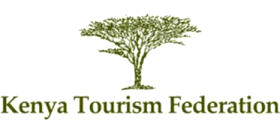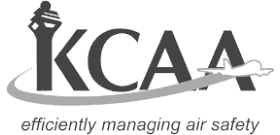Kenya's Wildlife Parks Rocked: New Fee System Sparks Outcry Over Hidden Costs

The Kenya Tourism Federation (KTF) has raised a significant alarm regarding recent modifications to the Kenya Wildlife Service (KWS) park-entry payment system, cautioning that these changes could severely impact the country’s crucial tourism sector. The updated payment portal, which was launched despite an existing court order, has been met with strong criticism for its restrictive payment options and the inclusion of a hidden 5 percent “gateway fee” that only becomes apparent during the final stage of the transaction. Fred Odek, Chairperson of KTF, condemned the new system in a public statement, branding it as both “discriminatory and unlawful” and highlighting the absence of public consultation in its implementation. He argued that such unilateral changes undermine the rule of law and pose a serious threat to Kenya’s esteemed reputation as a premier safari destination, a sentiment echoed by many concerned industry stakeholders.
A core element of the dispute is the undisclosed 5 percent gateway fee, which is levied on top of the standard park-entry fees without prior notification. KTF asserts that this charge lacks any legal basis and places a disproportionate burden on tour operators, who frequently handle substantial payments to KWS. The federation contends that this fee structure is inherently unfair, as it penalizes high-volume operators with larger absolute charges for processing the same service, a practice that directly contradicts typical industry standards where bulk transactions traditionally qualify for discounts rather than additional surcharges.
Further complicating the situation is the severely limited array of payment methods supported by the new platform. Currently, only M-Pesa and Visa card transactions are permitted, a restriction that KTF warns could lead to substantial operational bottlenecks, particularly during peak tourist seasons. Many operators face strict card limits that are quickly exhausted when processing large group bookings or multiple daily transactions. This lack of payment flexibility, coupled with the hidden fees, is widely perceived as a detrimental step backward in terms of transparency and overall customer service for the Kenyan tourism industry.
The financial ramifications of this revised system are considerable. KTF estimates that the tourism sector stands to incur over Sh370 million in additional, unbudgeted expenses annually, solely as a direct consequence of these new gateway fees. This projection is based on the anticipated 2024 park-revenue figures of Sh7.41 billion. Such an increase in operational costs is poised to squeeze the already tight profit margins of tour operators and will likely be passed on to visitors, thereby diminishing the global competitiveness and affordability of Kenyan safaris.
Beyond the financial strain, Odek has also voiced profound concerns regarding the potential damage to Kenya’s international tourism reputation. He warned that the new charges risk making Kenyan safaris prohibitively expensive, leading to Kenya being perceived as an unreliable destination. Given the abundance of alternative safari experiences available across Africa, there is a tangible risk of losing significant market share to neighboring countries offering more transparent and competitive pricing.
The controversy surrounding the payment system is further exacerbated by critical legal issues. KTF has formally accused KWS of acting in defiance of a court order issued on October 1, 2025, which explicitly prohibited the implementation of new park-fee rates. The federation firmly insists that KWS should have reinstated the previous eCitizen payment system until the court’s final determination on the matter. This ongoing legal standoff introduces an additional layer of uncertainty for both tour operators and international travelers, who are left to navigate a rapidly evolving and unpredictable regulatory landscape.
These changes coincide with a broader governmental review of park-entry fees under the Wildlife Conservation and Management (Access and Conservation) (Fees) Regulations, 2025, which received parliamentary approval in September. According to the Ministry of Tourism and Wildlife’s Regulatory Impact Statement, these reforms are intended to substantially boost KWS park-fee revenues from Sh7.41 billion in 2024 to Sh16.58 billion by 2028, with the overarching goal of enhancing conservation financing. However, the substantial increases in entry fees—such as the hike in Nairobi National Park fees for residents from Sh430 to Sh1,000, and for non-residents from $43 (Sh5,570) to $80 (Sh10,360)—have ignited considerable debate regarding the delicate balance between environmental sustainability and tourist affordability.
Illustrative examples of these fee increases include premium parks like Amboseli and Lake Nakuru, which are now set to charge Sh1,500 for locals and Sh11,660 for foreign visitors, while mid-tier parks such as Meru and Aberdare will cost Sh800 for locals and $70 (Sh9,070) for foreigners. Even access to Hell’s Gate will see fees rise to Sh500. While the Ministry staunchly defends these increases as vital for the long-term sustainability of Kenya’s invaluable wildlife heritage, industry voices collectively argue that the combined effect of higher fees, concealed transaction costs, and limited payment options erodes trust and transparency—elements that are fundamental for a flourishing and competitive tourism sector.
In light of the escalating criticism, KTF is urgently advocating for the immediate suspension of the 5 percent gateway fee, the prompt restoration of the previous eCitizen platform, and full adherence to the standing court order. The federation’s resolute stance reflects a widespread sentiment within the industry: that any reforms must be implemented in a manner that is transparent, legally compliant, and includes meaningful input from those most directly impacted. As Kenya navigates this challenging transitional period, the ultimate outcome will have profound implications, not only for local operators but also for the continent’s standing in the global safari market.
For the broader African travel sector, the developments unfolding in Kenya serve as a timely and crucial reminder of the imperative to strike a judicious balance between revenue generation and ensuring operational fairness and fostering customer trust. As governments across the region consider modernizing their tourism infrastructure and payment systems, the Kenyan experience underscores the critical necessity for inclusive dialogue, strict legal compliance, and an unwavering focus on long-term competitiveness. The decisions made today will undeniably shape the trajectory of African tourism for many years to come, influencing everything from pricing strategies to international perceptions of the continent’s most cherished and biodiverse destinations.
You may also like...
The Stablecoin Wars: USDT, USDC, and New Entrants, Fighting for Global Dominance

The stablecoin market has evolved into a high-stakes battle for financial trust. As USDT, USDC, and new challengers like...
The Hypocrisy of Prayer! Holy Voice, Zero Humanity

In a world where faith often feels like performance, “The Hypocrisy of Prayer” exposes how modern religion hides behind ...
Jennifer Lawrence Bares All: From 'Die My Love' Intimacy to Cellulite Stand-Off

Jennifer Lawrence discusses her role in Lynne Ramsay's "Die My Love," detailing her comfort filming sex scenes with Robe...
Wicked: For Good Mania! Film Dominates Award Nominations and Reveals Behind-the-Scenes Magic

A new exhibition in Chicago will celebrate the illustrious career of costume designer Paul Tazewell, showcasing iconic p...
Regina Daniels' Family Crisis Explodes: Actress Breaks Silence as Mercy Johnson Demands Brother's Release

Nollywood actress Mercy Johnson has called for the release of Regina Daniels' brother, Sammy West, amid allegations of h...
Sterlin Harjo Unlocks 'The Lowdown' Finale Mystery & Teases Season 2 Shockers!

FX's 'The Lowdown' is a crime drama set in Tulsa, Oklahoma, featuring Ethan Hawke as "truthstorian" Lee Raybon, who delv...
Kenya's Wildlife Parks Rocked: New Fee System Sparks Outcry Over Hidden Costs

The Kenya Tourism Federation (KTF) has voiced strong objections to the Kenya Wildlife Service's (KWS) new park-entry pay...
Kenya's Skies Transformed: Nation Bans Fokker 27 and 50 Aircraft Imports

The Kenya Civil Aviation Authority (KCAA) has banned the importation and registration of Fokker 27 and Fokker 50 aircraf...




